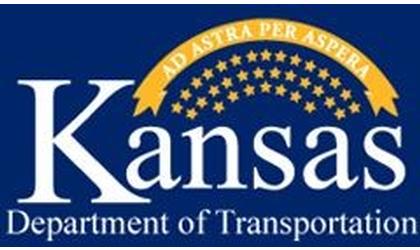(KAIR)--Four local cities are among thirty-six Kansas cities that will receive what a release from Governor Laura Kelly calls “a combined total of $23 million to improve highways and intersections as part of the Kansas Department of Transportation’s City Connecting Link Improvement Program,” commonly referred to as CCLIP.
Funded projects fall into one of three categories: Surface Preservation, Pavement Restoration, and Geometric Improvement.
Both Fairview and Centralia are awarded funding for geometric improvement projects, with Fairview receiving $2 million for a project on U.S. Highway 36 and Centralia receiving $1 million for a project on K-9.
The City of Horton is awarded $300,000 for a surface preservation project on U.S. Highway 73, while Atchison is awarded $300,000 for a surface preservation project on K-7 Highway.
According to a release from the City of Atchison, the city’s 17th Street, or Main Street to Country Club Road, “which is also on the route of K-7 Highway through the City,” will benefit from the funds, with “a mill and overlay project to be built in 2022 or 2023,” with the project “likely to be built in tandem with a mill and overlay of Main Street, from 10th Street to 17th Street, which was previously awarded a $300,000 grant through the same Kansas Department of Transportation program.”
Assistant Atchison City Manager Justin Pregont, in the City’s release, says the awarded work “fits together nicely with other recently built projects as well as other planned improvements that are coming over the next couple years.”
According to Kelly’s release, “Highway Infrastructure Program funds coming to Kansas enabled this round of CCLIP funds to increase from $18 million to $23 million for use in fiscal years 2022-2024.” KDOT received 61 applications requesting $37 million in funding towards $47 million in total construction.
According to the release, a city, under the program, “is required to contribute up to 25 percent of the project cost based on its population, though some cities contribute significantly more. Cities under 2,500 in population are not required to provide a match.”
© Many Signals Communications
MOST VIEWED STORIES
Bern teen killed in SE Neb rollover crash
Four injured in Friday Jackson Co crash
Troy man arrested on drug charges after search warrant
New Sabetha city administrator hired
Shooting near Mayetta being investigated
Property damage in DUI leaves Iowa man charged
Multiple crews battle Hoyt area fire
Man accused of beating another man with a baseball bat
Woman arrested in Jackson Co on meth charge
Probation for LV woman convicted in child death
KASB to assist USD 415 in search for new Superintendent
Falls City Utilities planned power outage
Two arrested after Holton search warrant
Seneca City Council approves hiring of new police officer
Man killed in Holt Co MO crash
Atchison's Halloween set for Saturday; parade, trick or treat planned
Enrollment down in Prairie Hills USD 113
Atchison Co RWD 5C again placed under boil water advisory
LATEST STORIES
Local district judge vacancy filled
Mound City MO school goes into precautionary soft lock down ( UPATED)
Falls City Council approves contract for electric service upgrades
Man killed in Holt Co MO crash
Atchison switches water treatment to assist affected suppliers
New Brown Co Commissioner sworn-in
Two arrested after Holton search warrant

 Printer Friendly
Printer Friendly
 Email to a Friend
Email to a Friend






